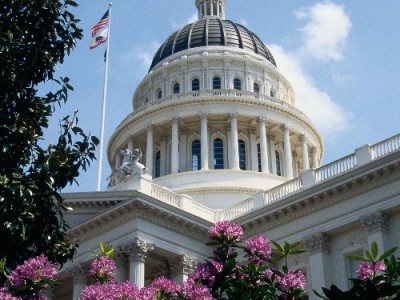Congress
A Bailout By Any Other Name…
Weak environmental laws are another form of bailouts for private industry
Bailouts – the payment of public funds or resources to rescue or support a private enterprise – are politically very unpopular. The primary challenger who defeated Republican House Majority Leader Eric Cantor in Virginia excoriated Cantor for supporting big banks in the wake of the financial crisis. The bailout of banks after the crisis that …
Continue reading “A Bailout By Any Other Name…”
CONTINUE READINGObamacare’s lessons for the future of EPA’s CO2 rule
The survival of the greenhouse gas rule depends on how much people invest based on it
There has (rightly) been a lot of attention paid to the EPA proposed rule controlling greenhouse gas emissions from powerplants pursuant to Clean Air Act Section 111(d). All of that analysis – how effective the rule will be; how it will be implemented; the prospects for successful legal challenges to the rule – is important. …
Continue reading “Obamacare’s lessons for the future of EPA’s CO2 rule”
CONTINUE READINGIt’s Not Waste, It’s An Ecosystem
Letting rivers flow supports ecosystems and people
One thing that droughts in the West provoke are political battles over water. The drought that California is currently in is no exception. Republicans in the U.S. House of Representatives have just passed a bill that would – more or less – exempt farmers in the Central Valley from environmental laws like the Endangered Species …
Continue reading “It’s Not Waste, It’s An Ecosystem”
CONTINUE READINGPine Beetles, Environmental Law, and Climate Change Adaptation
Inflexible laws may be the best response to climate change
Anyone who lives or has visited the Intermountain West over the past decade or so has noticed the devastating impact of a mountain pine beetle epidemic on the pine forests from Arizona and New Mexico all the way up to British Columbia and Alberta. As a result of warmer winter weather because of climate change, …
Continue reading “Pine Beetles, Environmental Law, and Climate Change Adaptation”
CONTINUE READINGThe Filibuster and the Environment
In the short run, limiting the filibuster will strengthen the hands of environmental regulators. What about the long run effects?
The filibuster arguably served a useful function when it allowed the minority to block action in extraordinary cases where its views were especially intense. It became no longer tolerable when it became a routine barrier to Senate action. Last week, the Senate abolished filibusters for nominations (except the Supreme Court). What does this mean for environmental …
Continue reading “The Filibuster and the Environment”
CONTINUE READINGThe House Takes Aim at EPA Regulation of Power Plant Pollution
Last week, the House passed HR 1582 on a 232-181 vote. The law is designed to restrict EPA regulation of power plants, but the House also adopted an amendment that takes a swipe at environmental economists. HR 1582 is mercifully brief and to the point. When EPA proposes a rule that would impose over $1 billion …
Continue reading “The House Takes Aim at EPA Regulation of Power Plant Pollution”
CONTINUE READINGThe Congressional Back Door Attack on California’s Environmental Programs
California’s Environmental Programs
Today’s Los Angeles Times reports on disturbing, broad-based efforts in Congress that threaten to eviscerate a host of California’s cutting-edge environmental initiatives, most prominently its “Green Chemistry” program. The saga begins with the California Legislature’s enactment of the state’s “Green Chemistry Initiative” (GCI) in 2008. The overarching principle behind GCI is to mandate the design of chemical products …
Continue reading “The Congressional Back Door Attack on California’s Environmental Programs”
CONTINUE READINGOn the politics of the Keystone pipeline
This article from the New York Times a couple of days ago describes how President Obama, on a fundraising visit here in the Bay Area, made clear how difficult environmental politics are for a President in the midst of a recession – especially the Great Recession: Appearing at the home of an outspoken critic of …
Continue reading “On the politics of the Keystone pipeline”
CONTINUE READINGThe filibuster and environmental law
The filibuster in the U.S. Senate has been (rightfully) in the news quite a bit over the past few years. The use of the filibuster has dramatically increased in those years, to the point where there is currently a de facto 60-vote supermajority requirement to pass legislation in the Congress. That has led to a …
Continue reading “The filibuster and environmental law”
CONTINUE READINGOne reason for anti-EPA riders
There’s been a lot of (appropriate) outrage over the efforts in the past year and a half by House Republicans to gut environmental protections through the use of appropriations riders. Those efforts might well continue in the next appropriations cycle, especially since bashing the EPA is apparently a popular election-year activity for Republicans. One of …
Continue reading “One reason for anti-EPA riders”
CONTINUE READING




